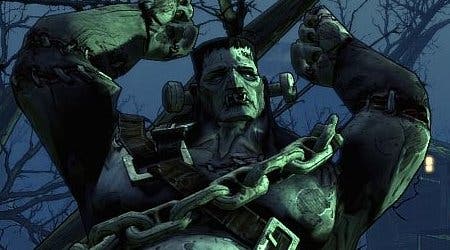Saturday Soapbox: Something Borrowed
Is the increasing recycling of game assets a cause for concern?
Sometimes it's the flawed ones that make you think the most. During a rare moment of downtime in the disappointing Dead Rising 2: Off The Record, I started considering how developers and publishers reuse content: what represents an acceptable recycling of assets, and what doesn't.
Is one man's fan service really another man's cynical cash-grab? Are publishers exploiting fans or simply trying to make games more financially viable? Would anyone quibble over buying three different versions of Street Fighter IV if they knew their money was the difference between Capcom producing an SFV and abandoning the series permanently?
This isn't necessarily a recent phenomenon, but it's becoming more commonplace, and that's because gaming is going through a period of pretty serious upheaval. Long-established traditions are disappearing. Nintendo's dominance of the handheld arena is all but over; mobile and social gaming are the biggest new market drivers; the App Store is ripping up the rule book on distribution and pricing with iconoclastic glee. It's impossible to be certain of anything. Nothing is true; everything is permitted.
The console games market in particular is under increasing pressure. Profit margins are growing thinner and rising development costs aren't helping. In a market where a game can sell a million copies or more and still lose money, is it fair to expect developers not to make more use of the assets, the characters, the worlds they've painstakingly created? And in games where these characters and worlds warrant a revisit, why, indeed, are we complaining?
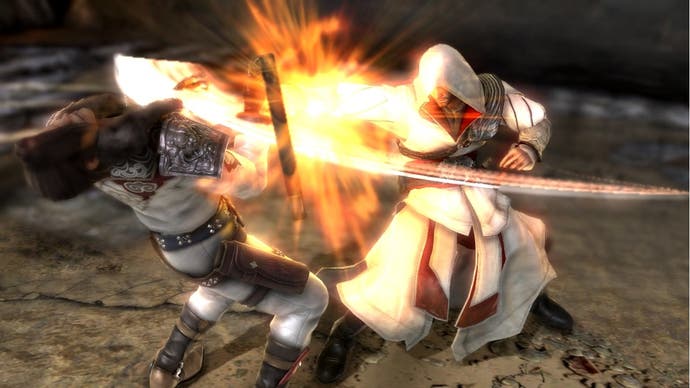
Recycling happens for several reasons, not least the need to (warning: a horrible marketing term approaches) maintain brand momentum. Franchising is a way to offset the higher risk of the biggest-budget titles, which means publishers will explore the most cost-effective ways of reducing that risk and attempting to increase profitability. Hence: sequels with negligible improvements, downloadable content, director's cuts, Game of the Year editions.
Meanwhile, from a creative standpoint, it's a way for developers to re-examine worlds and ideas, fix stuff that was previously broken and elaborate on elements that were glossed over - or just tell us a new story. It's easy to see why it appeals to both parties.
I've already mentioned Capcom. The publisher is a master of this particular art, with roughly 43 Street Fighters under its belt - which makes the aforementioned Off The Record a particularly interesting case in point, especially in light of its two previous attempts at recycling this game.
The two downloadable episodes for Dead Rising 2 offered different locations as well as fresh combo weapons and a new story in each instance. Case Zero benefited from arriving before the game proper; Case West doubled the cost but introduced co-op, Frank West and another new location, thus proving similarly worthwhile. Off the Record, however, saw Blue Castle effectively copy-paste the original narrative and digitally insert Frank into scenes where Chuck once stood. An additional sandbox mode wasn't enough to prevent a serious case of déjà vu.
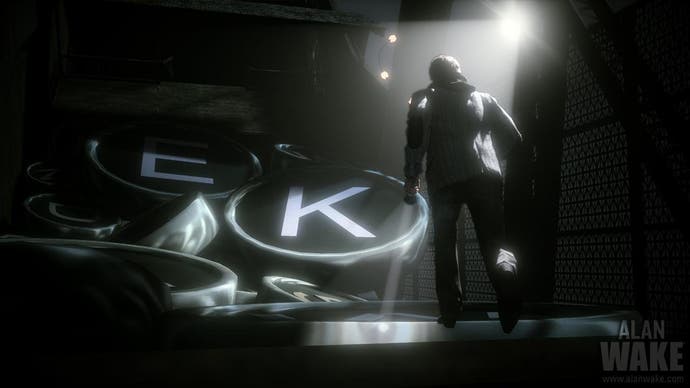
Yet it's possible to see it from another perspective. PS3 and PC owners with no access to the Xbox-exclusive DLC don't have the improvements or differences in those two games to compare with. I've heard some say they couldn't get into Dead Rising 2 but the re-introduction of Frank and the addition of checkpoints made it more appealing and accessible than the original, especially at a budget price.
It's a tricky balancing act, that's for sure, and one which even the industry's top dogs are struggling to get right. Rockstar appears to be heading in the right direction: the vast sprawl of GTA4's Liberty City was always going welcome repeat visits, and The Lost and Damned and Ballad of Gay Tony proved the Housers' proto-New York had more stories to tell. Undead Nightmare fundamentally changed the way you played Red Dead Redemption - although I sincerely hope 'It's [Franchise X], but with added zombies!' (or Sarah Michelle Gellar, same difference) doesn't become the de facto approach to DLC. But the publisher stumbled with LA Noire's extra cases, which, as memorably discussed in John Teti's review of the Nicholson Electroplating DLC, failed to work outside the context of the game's narrative.
Fitting a story into a wider universe - one that players will often have invested upwards of 20 hours in - while making it interesting enough to work as standalone content is not easy. Even the most successful of storytellers have struggled.
Fallout 3's five episodic adventures varied wildly in quality, and while Broken Steel was welcomed by those who finally had the opportunity to raise their level above the previous cap of 20, a great many were troubled by the need to change the game's ending to get there. BioWare seemed to have nailed it with Dragon Age: Origins' huge Awakenings expansion and Mass Effect 2's splendid side-stories Lair of the Shadow Broker and Kasumi: Stolen Memories - but that would be to ignore misfires like Dragon Age 2: Legacy and Origins' Return To Ostragar. Meanwhile, Lionhead's attempts to expand the Fable series have been particularly laboured. Albion's a lovely place, but it turns out once you've saved it from impending doom, it's tough to really care about going back.
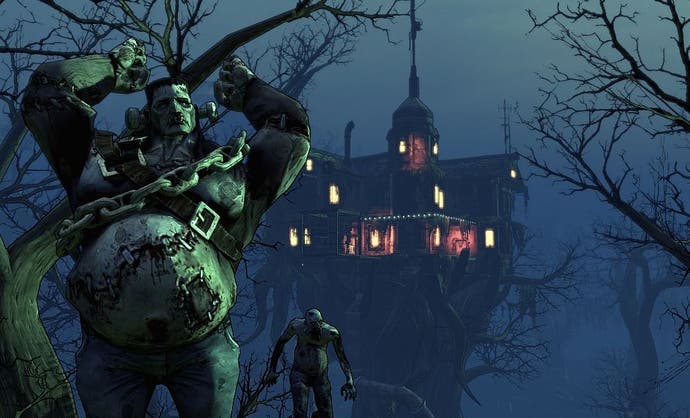
Just as some songwriters save their really good tunes for that difficult second album, perhaps the trick is to hang onto your best stuff a while longer. For many, BioShock 2: Minerva's Den trumped its parent game, while Gearbox's Borderlands expansions have been particularly excellent, introducing new characters and ideas to add colour to a world the main game's campaign only lightly sketched.
I often wonder if developers could take tips from PC modders to really make the most of the worlds they've created, though the very best examples - like Half-Life 2 mod Dear Esther - are likely more time-consuming and expensive than is worth a developer's while.
Then there's the Nintendo approach. Ever thrifty and forward-thinking, the Kyoto colossus worked out the benefits of asset reuse in the N64 era, most notably around the release of Ocarina of Time, when Miyamoto posited the idea of a quick follow-up in the form of the Master Quest. Eiji Aonuma disagreed, and we ended up with Majora's Mask: not the worst result ever.
Super Mario Galaxy 2 was internally described as Galaxy 1.5, with Nintendo planning to shove out a simple level pack of new galaxies in the hope that everyone would be having too much fun to notice how familiar it all was. But Koizumi and co. cocked that one up too, chucking in Yoshi, streamlining the decorative but functionally pointless hub and somehow managing to better a game with a Metacritic rating of 97.
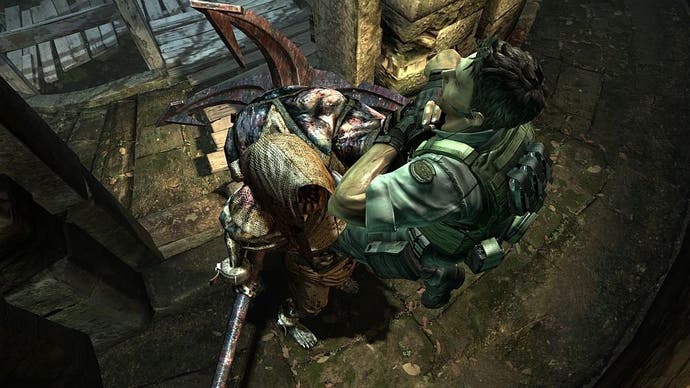
Few developers can leverage the popularity of such iconic characters. Even so, it seems that creating an avatar that people respond to can be rather lucrative - as Ubisoft has found out with the Assassin's Creed series, capitalising on the love for Ezio Auditore da Firenze to craft an entirely unplanned trilogy of titles for the Renaissance hitman. It would be unfair to suggest others follow Ubisoft's example, mind; hardly any developer has access to the kind of resources and financial backing, not to mention the workforce, of the publisher's gigantic Montreal studio.
Perhaps there's a lesson in keeping it simple. It's a method that has worked well for Sega's Yakuza series; five games down and fans still aren't sick of the gaudy delights of Kamurocho, even if creator Toshihiro Nagoshi seemingly got so fed up of the place that he decided to destroy it in a zombie outbreak. It's proof that if you have a compelling game world and change just enough each time, you can be onto a winner without breaking the bank.
As Johnny Minkley said in his recent Zelda: Skyward Sword preview, "the series' consoling familiarity provides a brilliantly successful blueprint that Nintendo endlessly toys with to deliver that 'surprise' Miyamoto always cites as his creative goal." It has demonstrably worked for Nintendo and more recently for Ubisoft. More of the same is fine - if it's the same as something brilliant.
Either way, it's something we're going to have to get used to. With the next generation of consoles just around the corner, development costs are only going to climb and recycling will be more common than it is now.
But it needn't be a bad thing. There's enough evidence that recycled content can be a force for good rather than just a cynical way of squeezing more money from a hungry fanbase; it all depends on how it's used. Oh, and if in doubt - don't add zombies.
